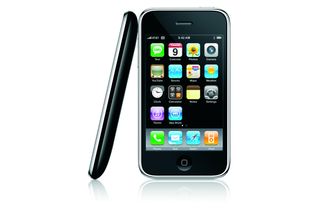iPhone 3G targets business
Friday's launch of the 3G iPhone will not only excite consumer users, thanks to various software improvements it will also leave IT managers and business users with a tough choice to make.

When the iPhone first hit the market last year it was welcomed with frenzied enthusiasm. In the US alone, some 270,000 Apple fan boys and girls queued for days to be the first to own one.
Nearly one year on, it seems that Apple is hell bent on recreating that initial excitement with their 3G update, billed as the "iPhone you've been waiting for".
I say ambitious because, unlike its predecessor, Apple's new venture will combine all the features of the original iPhone, but this time it will work on 3G mobile networks, has integrated GPS and the significantly updated iPhone 2.0 firmware. This major software update, which will also run on existing 2G iPhones, includes support for Microsoft Exchange ActiveSync, push email and Cisco VPN access. It will also run hundreds of third party applications built with the recently released iPhone SDK.
Analysts, such as Atlantic Equities, are already predicting that over a million devices will be bought this weekend.
But what makes the iPhone 3G that bit more intriguing is that it really is more business-friendly than the original. Yes, it will play music, but it will also support corporate email integration and will be available on a range of business tariffs for both small businesses and large enterprises. Small business users can expect to pay around 30 a month for a business airtime contract.
O2, Apple's iPhone operator in the UK, has already signed up 15 corporate customers, including Logica and McDonald's, to beta test the device.
According to O2 spokeswoman Emma Hart the reaction from the beta testing has been "very positive, particularly around the push email functionality of the device".
Get the ITPro. daily newsletter
Receive our latest news, industry updates, featured resources and more. Sign up today to receive our FREE report on AI cyber crime & security - newly updated for 2024.
A key aspect to consider is security. The iPhone 3G supports Cisco IP VPN as well as WPA2 Enterprise Wi-Fi security with 802.1x authentication. The built-in Exchange ActiveSync support also handles security features such as remote wipe, central password policies and auto-discovery. But in an age of heightened paranoia, is this level of security really enough to ward off risk, especially in a business environment?
"My viewpoint is that for large enterprises it's not secure enough and I don't think that it would pass an IT manager's test of security," said Ovum senior analyst Tony Cripps. "It doesn't have the same kind of configurations as a BlackBerry. But a device like this might field better in smaller enterprises."
So could the iPhone 3G just be a case of aesthetics over practicality? There is after all, something very appealing about the sleek dimensions of Apple's product design.
"The aesthetic appeal does extend beyond the consumer market," insists Cripps. "And some of the devices that RIM has coming out soon have more of an aesthetic appeal, which was less clear in their earlier BlackBerry devices.
"I don't think I'd have much choice over which one I'd prefer to work with, but I think from an IT point of view a BlackBerry would be landing on my desk every time."




